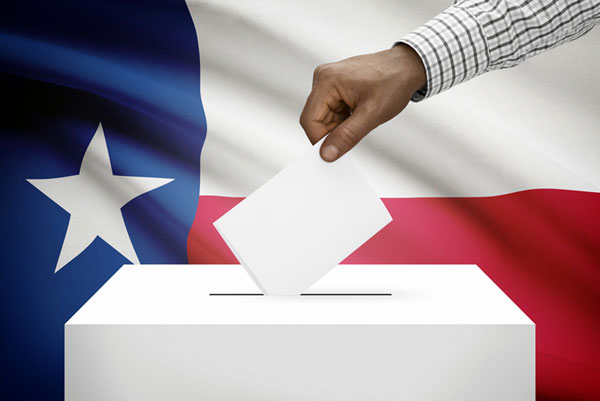- La Feria Community Holds Succesful Business Mixer Event
- Little Nashville to Take Place in Downtown Mercedes
- Lions Basketball Captures District Gold
- La Feria ISD Students Compete in Regional Chess Tournament
- Lions End First Half of 32-4A on a High Note
- La Feria ISD Held Another Successful Parent Conference
- Strong Appearance for Lions at Hidalgo Power Meet
- LFECHS Students Get to Meet Local Actress
- Students Participate in Marine Biology Camp
- Two LFECHS Students Qualify for All-State Band
Agreement Means More Texans Can Vote in November
- Updated: August 19, 2016

More Texans will be able to vote in November under an agreement that allows a wider range of identification documents at the polls. Photo: niyazz/iStockphoto
by Mark Richardson
AUSTIN, Texas – Voting rights advocates encouraged the more than 500,000 Texans who could not have voted under the Texas Voter ID law because they lacked a photo ID to cast a ballot in the November general election.
Following a federal court ruling striking down most of the law, state officials and the plaintiffs in the case agreed to a set of rules making it easier for voters to identify themselves at the polls. Mary Moreno, communications director with the Texas Organizing Project, said her group is gearing up to get the message out to minority voters to get them to the polls on Election Day.
“We’re going to launch our ‘Get Out the Vote,’ which is what we really focus on, more than registration,” Moreno said. “We knock on doors and we connect the issues to the ballot box. You might not know who the politicians are that are running, but people always care about the issues that affect their lives.”
Under the agreement, a voter who doesn’t have a photo ID like a driver’s license or passport can now use a birth certificate, a paycheck stub, or a utility bill to establish their identity.
When the voter ID law was passed in 2011, backers said it was designed to prevent voter fraud. But opponents like Matt Angle, executive director at the Lone Star Project, believed it was passed to keep minority voters away from the ballot box, whether they had an ID or not.
“A lot of Texans who might have had the type of photo ID that was necessary were discouraged from voting by the Republican state leaders making voting sound like a risky proposition, sounding like it was something difficult to do,” Angle said. “That discouragement will no longer be there.”
Following the Texas ruling, courts struck down all or some of similar voter ID laws in Arkansas, North Carolina, and North Dakota. Legal challenges to voter ID laws are also pending in several other states.


